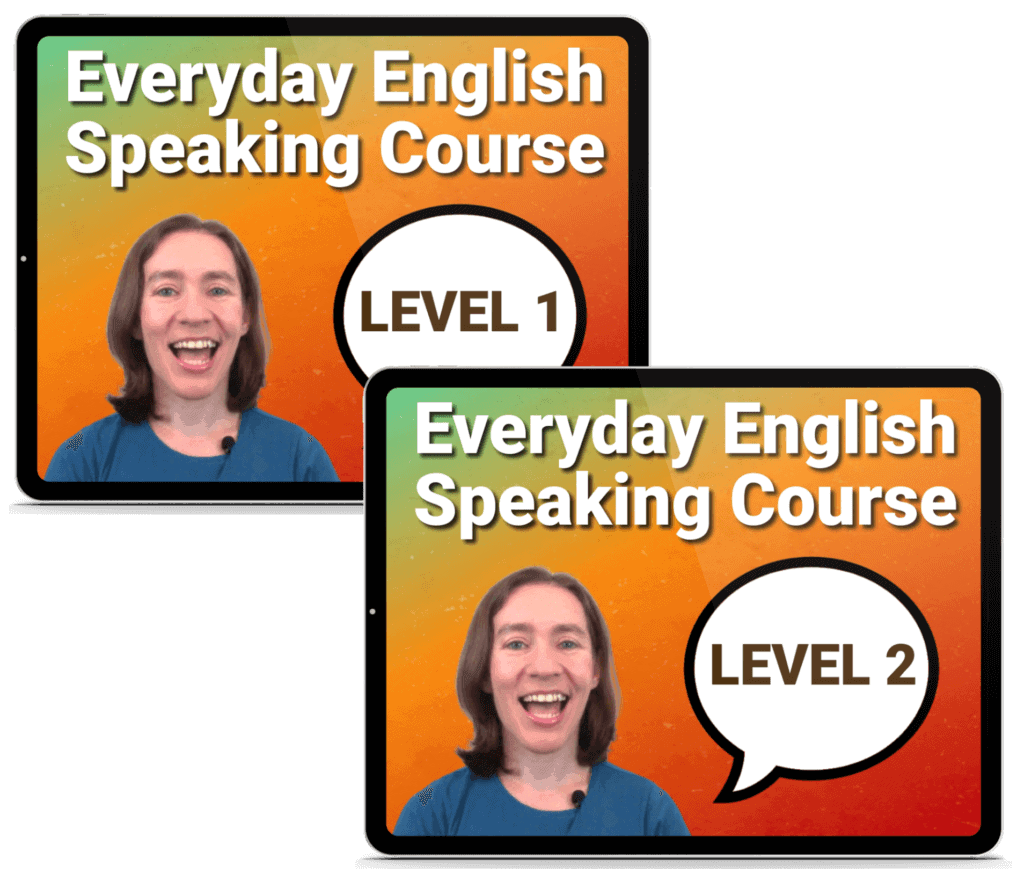
Hi students! It’s Shayna from espressoenglish.net and I’m here today to answer another question from one of my students. Someone asked about the difference between the expressions let me go and let me be – when do we use each of these expressions, and how are they different?
Let me go!
The phrase let go is used when you stop holding something with your hand. So if I’m holding this pen and I let go of it, it means I open my hand and I stop holding the pen. If I’m holding this whiteboard and I let go, that means I open my hand and I stop holding it.
So if someone is holding you, for example, a robber or just someone you don’t want to touch you, and they’re holding you physically, then you would say, “Let me go!” which means stop holding me. Stop physically restraining me.
You might also see “let me go” in movies when a criminal or a bad guy has taken someone captive and is holding them prisoner and the person who is being held prisoner might say, “Let me go.” It means release me physically or stop holding me. So let me go is physical.
Let me be!
Let me be is used when someone is bothering you or annoying you. So for example, let’s imagine I’m trying to study for a test, but my little brother keeps coming into the room and making jokes and asking me questions and making comments. I might tell him, “Hey, let me be,” which means, stop bothering me.
Another phrase that is probably more common would be, “leave me alone.” That also means stop bothering me or annoying me.
All right. So we have let me go, meaning to stop physically holding me, let me be, meaning stop bothering me or annoying me.
Let me… (Lemme)
And we also use, “let me…” in a couple other situations in English, for example, let’s say my friend is reading the newspaper and I want to check something in the newspaper. I might say, “Hey, let me see the newspaper for a minute.” That’s, let me see. Let me see the newspaper for a minute. In this case I’m using “let me…” to ask for permission. So it’s almost like, “Please allow me to see the newspaper.”
Of course, another way to ask would be, “Could I,” or “can I see the newspaper for a minute?” But when speaking informally, we often say, “Let me.”
And when speaking fast, we pronounce it like lemme. So my friend is reading the newspaper and I want to see the newspaper for just a moment. I would say, “Hey, lemme see the newspaper for a second.”
That example was literally asking for permission, but actually we often use let me or when spoken fast, it sounds like lemme, when we’re just talking about something we are going to do. So in that case it’s similar to “I will.”
For example, if my friend invites me to see a movie next Tuesday, I might say, “Let me check my schedule.” So I’m not asking permission for me to look at my own schedule. But I’m saying let me as a way to say I will. Usually, I will do this right now. So she calls me on the phone, she says, “Do you want to go to a movie next Tuesday?” And I say, “Ah, let me check my schedule.” That means I am going to check right now.
Or let’s say that two English students are working together and reading a text and they find a word that they don’t know. So one of them might say, “Let me check the dictionary.” Not asking permission, but just saying, “I will check the dictionary right now or in the near future.”
These are a couple of different ways that we use the expression let me in English.
- Let me go, for physical. I want you to physically stop restraining me.
- Let me be, which means stop bothering me, stop being annoying or leave me alone is another way to say that.
- Let me or lemme for either asking permission to do something like, “Let me see the newspaper for a second.” Or just I will do this thing immediately or in the near future. So, “Let me check my schedule to see if I’m available to go to the movies with you.” Or, “Let me check the dictionary. Let me look up this word.”
I hope that answers your question! In native spoken English, there are a lot of these little expressions which might be confusing to you because you’re not sure what the context is. A great way to learn some of those expressions is inside my courses.
I have two courses that are specifically on spoken English. And so you can learn English from conversations between two native speakers and learn these little expressions, these informal expressions that we use all the time. I’ll show you how they’re used in context and then I’ll explain them to you so that you can better understand conversations between native speakers.
Thank you for joining me for today’s live lesson. I hope to see you inside one of my courses, and that’s all for now. See you next time.










